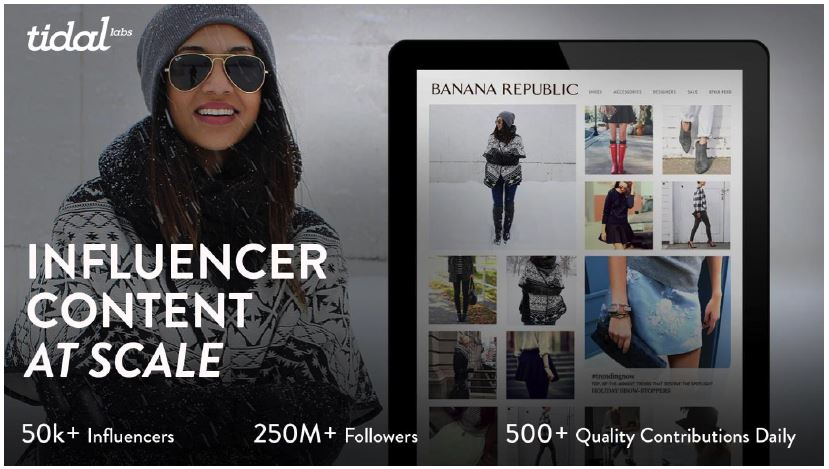Tidal Labs: Data-Driven Consumer-to-Consumer Marketing
Tidal Labs is a startup with a data-driven influencer marketing CRM platform that enables companies to scale up influencer marketing campaigns and manage their influencer content. The company helps brands locate the best influencers by using data analytics and manages the execution of marketing campaigns on behalf of the brands. Tidal Labs helps publishers to manage content and has created online blog communities for Condé Nast and the
TODAY TV show.
Founded in 2011, the company provides “content-as-a-service” to brands and publishers for a fee, typically $5,000–$30,000 a month. Its platform includes more than 50,000 influencers with a total of 136 million Instagram followers and 145 million blog readers. The name Tidal Labs represents its founders’ goal to make new waves of consumer-to-consumer marketing in the traditional marketing industry.
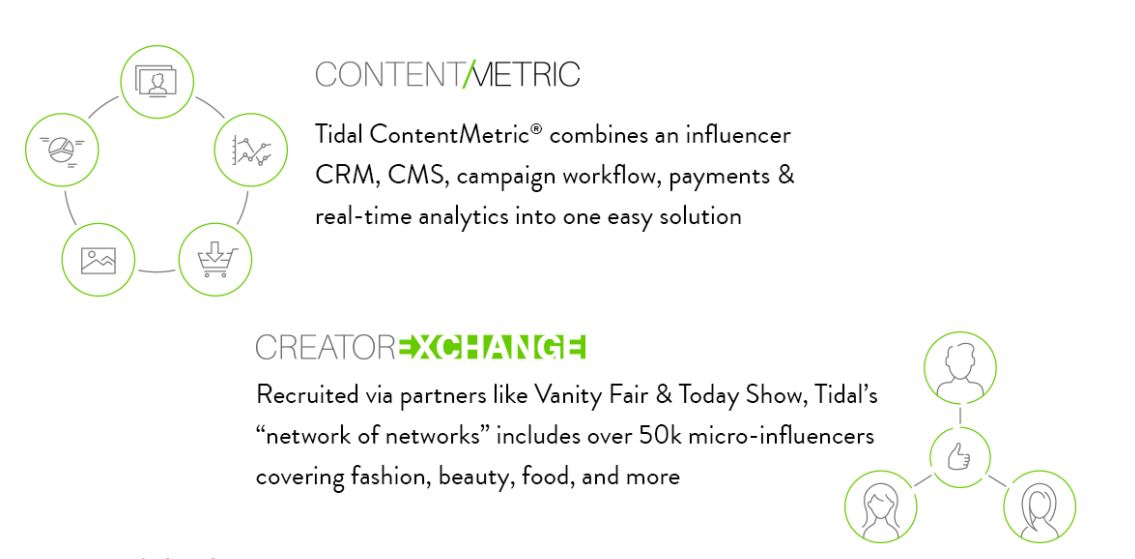
Source: Tidal Labs
The startup focuses on “micro influencers” who have 5,000–150,000 followers. These influencers typically produce more authentic content and have better engagement with their followings versus "celebrity" influencers. These influencers cover industries such as fashion and beauty, food and beverage, fitness and health, home and parenting.
TIDAL LABS’ DATA-CENTRIC APPROACH
Tidal Labs attempts to help solve the problem of scale and automation that typically exists with influencer marketing efforts.
In current industry practice, brands reach out to influencers directly or through marketing agencies. This is not scalable because communication, content execution and workflow management for each influencer is a manual process.
With Tidal Labs’ data-driven platform,
Content Metric, the company uses data analytics to match many influencers with many brands at the same time, according to their marketing goals and budget. The most suitable influencers are picked by their channels of influence; blogs and Instagram postings; industry focus and reach levels; engagements and page views. Tidal's Content Metric technology helps choose the best-performing influencers month-over-month allows brands to form ongoing influencer marketing programs versus the usual one-off engagements they have with influencers. This is important as more companies transition influencer marketing from test campaigns to a line item on the marketing budget.
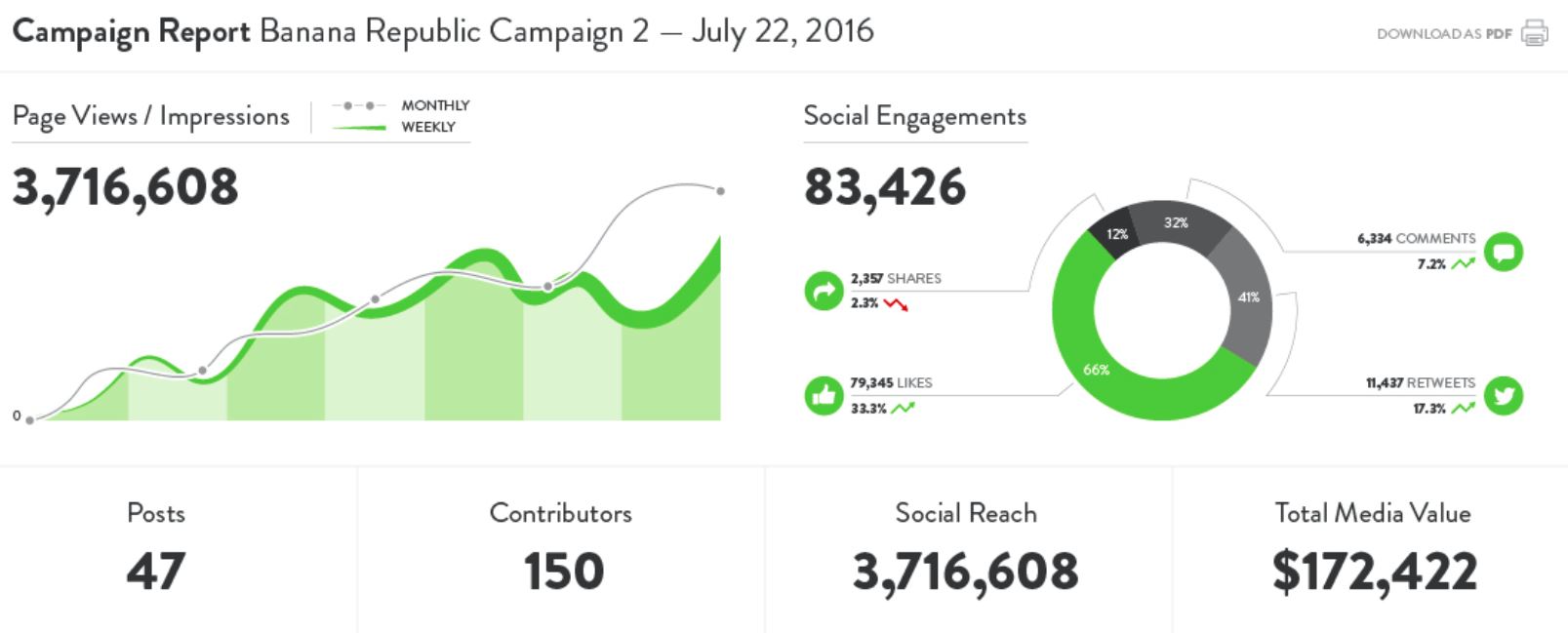
Source: Tidal Labs
TIDAL LABS LEVERAGES ITS RELATIONSHIPS WITH MEDIA OUTLETS
Tidal Labs has unique two-way partnerships with media outlets such as Condé Nast,
Men’s Health and for the
TODAY TV show. The company leverages its Content Metric technology to power communities and influencer networks for its media clients. At the same time, these media partnerships help Tidal Labs enlist the best bloggers and social media influencers because when a participant signs up on one of these channels, they join the Tidal Creator Exchange network of influencers. The media partners also lend their editorial expertise and helps Tidal Labs identify the best content.

Source: Tidal Labs
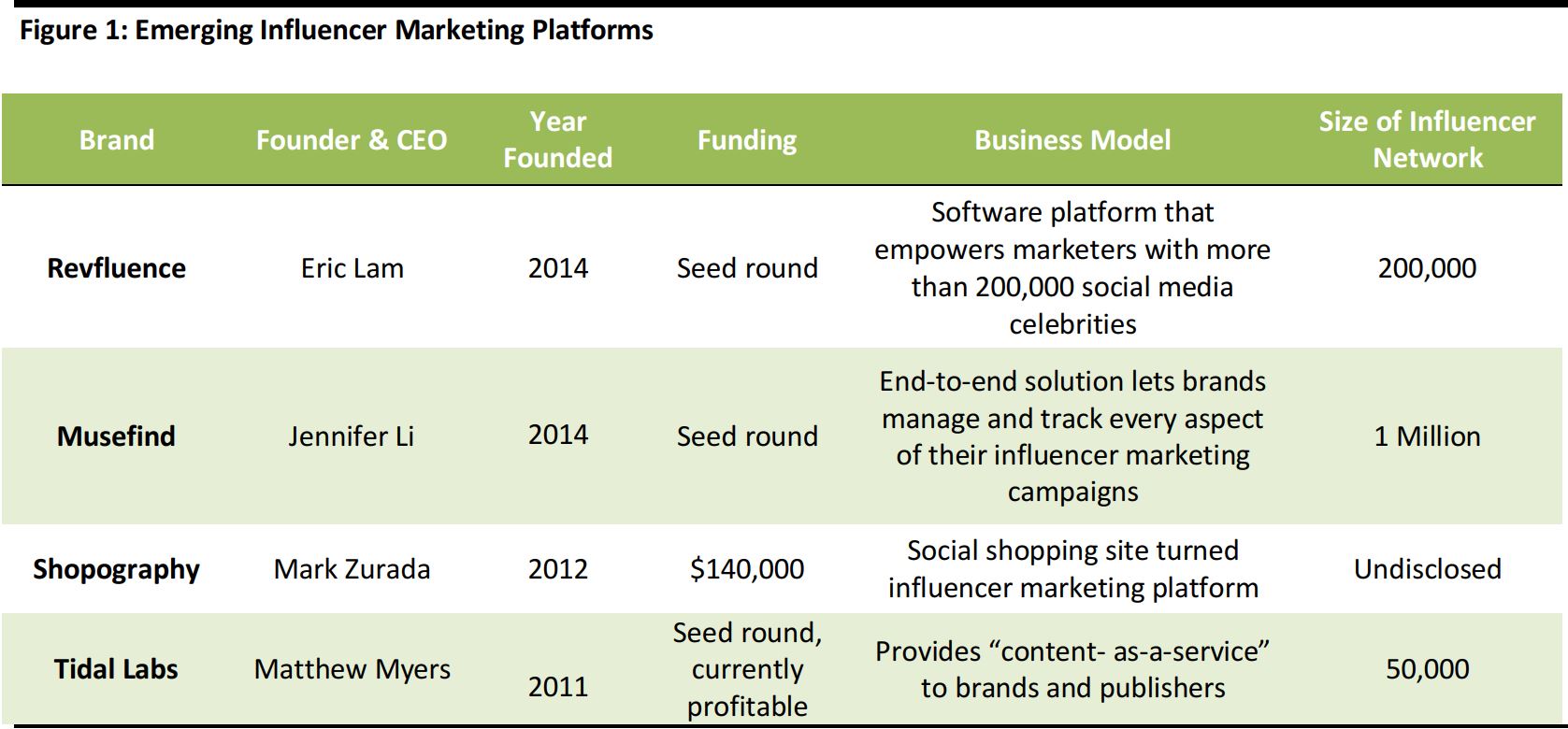
Source: Company reports/AngelList
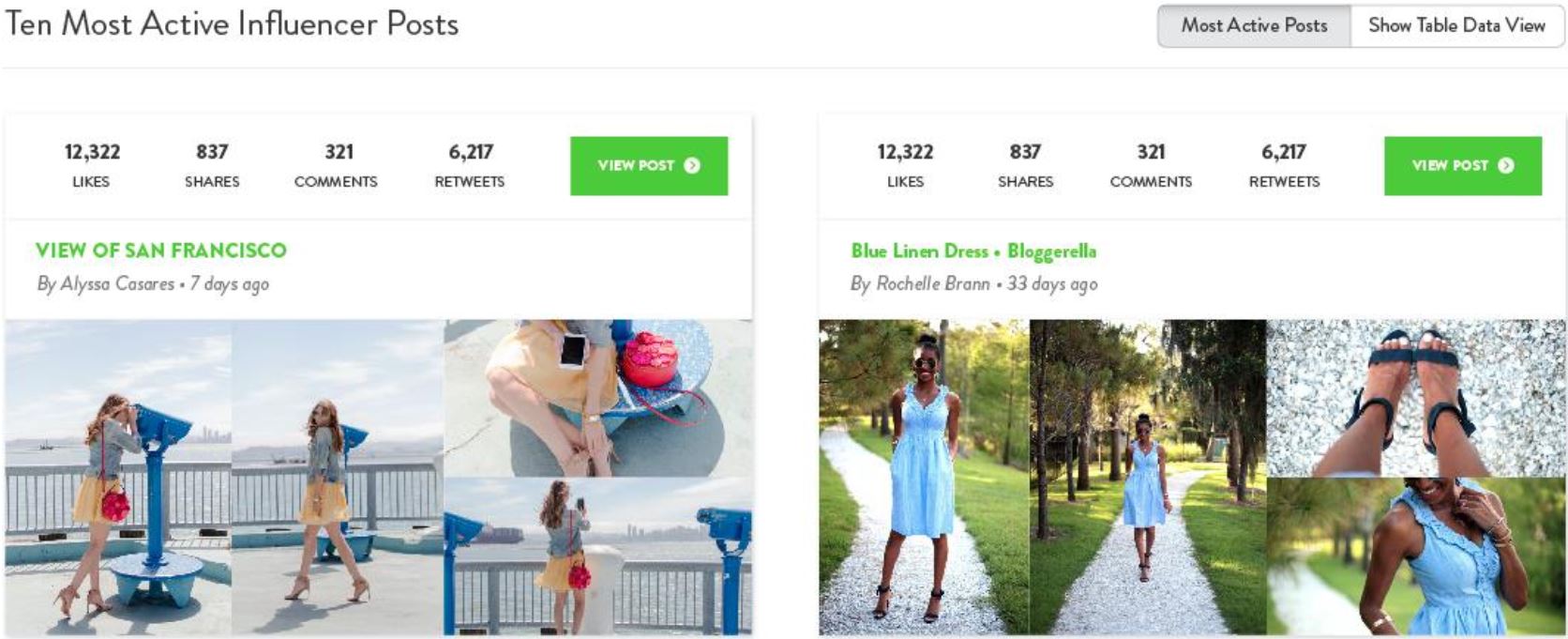
Source: Tidal Labs
WHY INFLUENCER MARKETING IS GROWING RAPIDLY
Influencer marketing has become more mainstream for three reasons:
- Social media have become more prevalent and increasingly occupy people’s attention at the expense of traditional media channels such as TV, radio and print media.
- Suggestive selling through word-of-month recommendations on social media platforms has become an increasingly popular advertising method. According to a poll of 150 marketing professionals by Tomoson, 22% of customers are acquired through influencer marketing campaigns, the fastest-growing customer acquisition channel.
- The return on investment (ROI) for influencer marketing is much higher than traditional marketing. Influencer marketing averages a return of $6.85 for every $1 invested versus a regular marketing return of $1.09, according to eMarketer. The same study revealed that for some categories, such as consumer packaged goods (CPG), the returns could be as high as $11.33 because the targeted audience of mom shoppers is often engaged on social media sites. Consumers tend not to rely on social media recommendations to make purchase decisions on big-ticket items such as home and garden or travel.
Marketers are expected to allocate more of their marketing budgets on influencer marketing in the next few years. A study by
Adweek said nearly 60% of businesses plan to increase their influencer marketing spend. Industry sources estimate influencer marketing currently accounts for 2%–10% of total corporate marketing budgets, depending on the industry.
